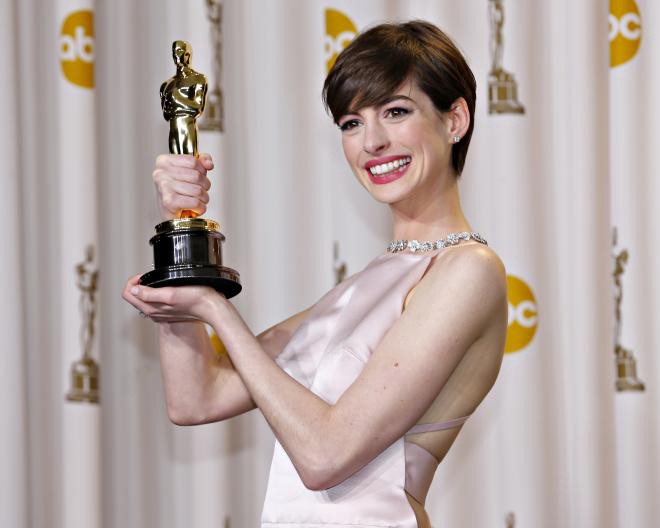Books & Culture
CELEBRITY BOOK REVIEW: Art dealer Larry Gagosian on “American Dream Machine” by Matthew Specktor

Editor’s note: Any resemblances to actual celebrities — alive or dead — are miraculously coincidental. Celebrity voices channeled by Courtney Maum.

Oh, I can tell you about the American dream. The son of Armenian immigrants, I spent the early 1970s living in a friend’s walk-in closet on Venice Beach, working as a valet because I’d been fired from my secretary position at William Morris. And then I started selling posters beachside, except I already had an eye for added value. I sold mine framed.
Today, I’m at the head of the most expansive art enterprise in the world. So when Peter Brant suggested that I read a book about a man with a journey similar to mine (from arriviste, to demigod, to whatever it is I am now), I listened. I mean, the man is married to Stephanie Seymour. He’s got pretty good taste.
American Dream Machine is the name of the novel Peter’s secretary sent along. I’m not usually a reader, but the book’s arrival coincided with a trip to visit our Hong Kong outpost, so I had a lot of time to kill on the plane. I mean, you can only see so many rom-coms featuring Paul Rudd.
This rather large novel tells the story of multiple men’s lives, but focuses in on one of them, the story’s hero, a film agent named Beau Rosenwald. The whole thing is narrated by his bastard son, a fellow who doesn’t seem to have inherited his father’s wit, but he does strike me as judicious, which Beau is not.
The book documents the changing face of the Hollywood film industry as experienced by a set of close male friends. Because this is Hollywood, and because we’re talking about men, and because one plus the other usually equals money, Beau finds himself betrayed by the very men who facilitated his rise from talent scout to co-founder of a visionary production company, called “American Dream Machine.” By this time in my cross-continental flight, the stewardess had informed me that they were out of Citadelle gin, so betrayal was very much on my mind.
When I first arrived on the LA art scene, I was considered an upstart. I was an English major, a former bookseller, my father was a civil servant, an accountant for the state. I’d never even stepped foot in a museum before the time I turned eighteen. But what connects me to this novel’s protagonist is simple: energy. I’m not a forward thinker, but I’ve always had great instincts in the now. And so does our friend Rosenwald: signing actors that others let fall by the wayside, recognizing something in them that would translate, and transform. When I signed Andy Warhol in the early eighties, everyone thought his dollar painting signs were vulgar. Well, no one’s laughing at me, now.
Another coincidence between Specktor’s protagonist and I: we facilitate the businesses we’re involved in. Over the course of the narrative, Beau played every part but actor: writer, director, producer, casting agent, lover, bankroller, friend. I, too, have never been the person holding the actual paint brush, but I’m my clients’ biggest cheerleader — I sell, and I collect, and I go behind the scenes into the badlands of the industry to negotiate with the auction houses to protect my clients’ worth. Some people call me a crook, a controller, even “carpetbagger.” I prefer the nickname they gave me in my early LA days: “Go-Go.”
Great men are often destroyed by their own friends. Just as Beau was betrayed by his closest confidante, Williams Farquarsen, so too have I been deserted by my numero one client, Damien Hirst. You give a man all eleven of your galleries to fill up with pastel-colored dots, you expect he’ll stick around. You confuse loyalty for friendship. You take money instead of words.
You can read the accounts of my other defectors online and in the papers: Tom-Friedman, Philip Taafe — and now there’s word of Yayoi Kusama leaving me, too. They’re discreet in Japan, her people don’t like that I drive up her prices. But I got her a collab with Louis Vuitton, not a fucking WalMart. I aim for brand continuity, and everyone is shocked.
Beau Rosenwald, at heart, is loveable and likeable to the people who know him best. Interchangeable, contagious, his very flaws become a part of his friends’ makeup, like a skin defect you tolerate, even as it reddens and worsens in the sun.
Ultimately, American Dream Machine aims to create a bellwether for that great big word: success. Some people measure it by the legacy they’ll leave behind them. Others, like yours truly, judge it in terms of the life they’re living now.
It’s too bad that Beau doesn’t exist. We’re kinfolk, really, this bumbling fictional dreamer and I — we’re both restless, terrified of satiation. We have to keep moving through the ugliness to stay vital and alive. We have sequin cartilage. We are shining sharks.







